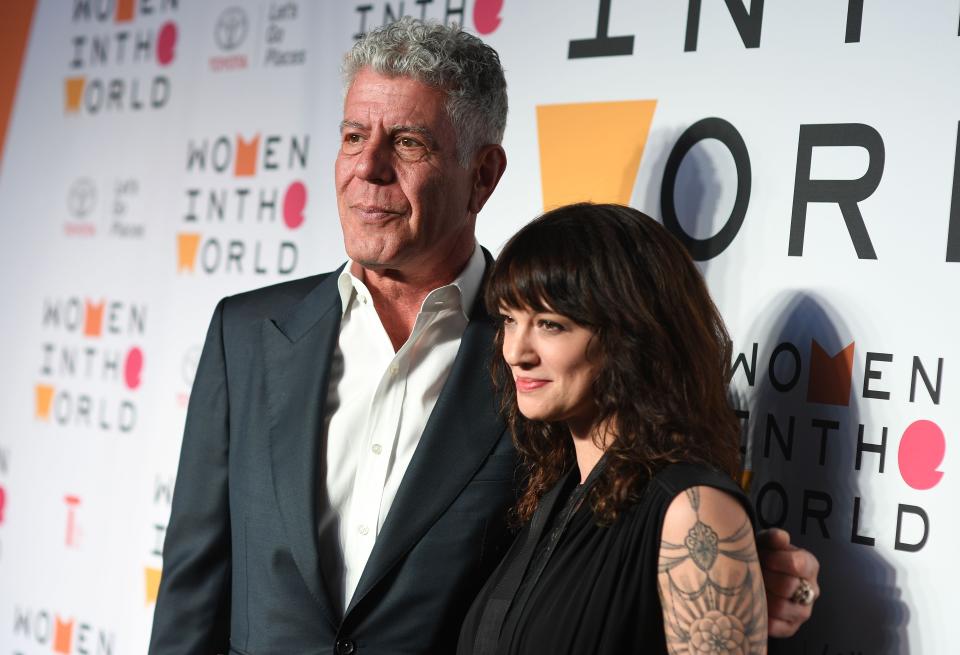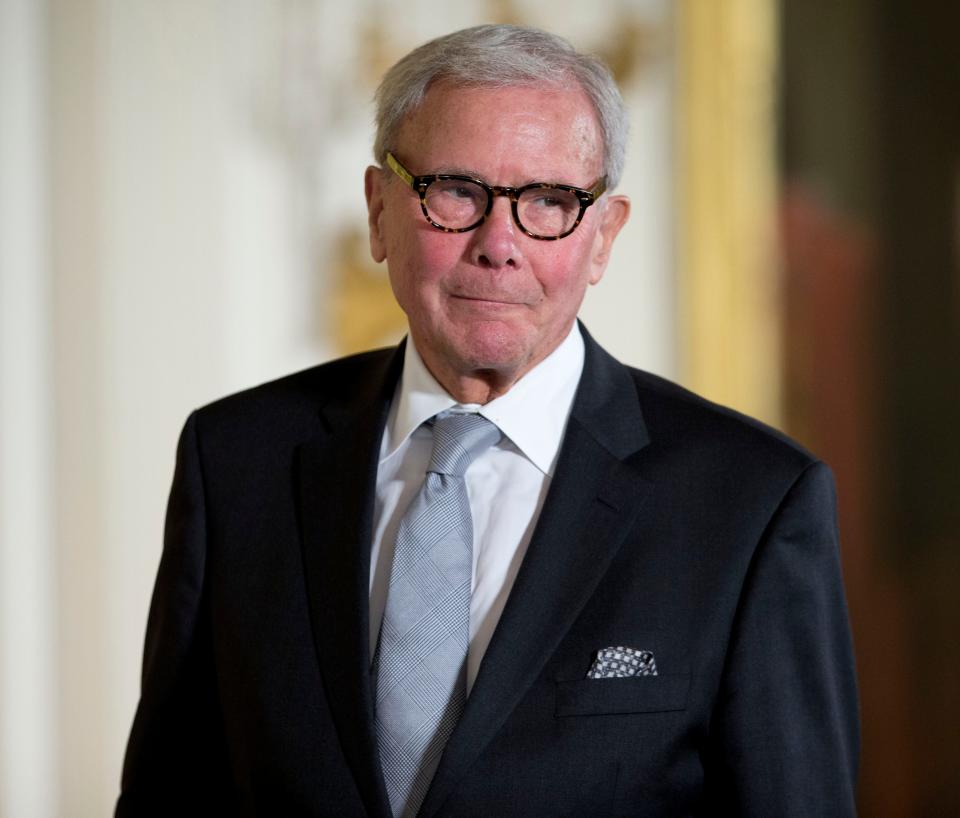Ronan Farrow recalls feeling 'inspired' by Anthony Bourdain, questions Megyn Kelly's firing
“Catch and Kill” is finally out in the world, and with it, more potentially eyebrow-raising insight into popular figures from journalist Ronan Farrow.
The Pulitzer Prize winner's new book has grabbed headlines in the week leading up to its release, stirring controversy with its accusations of an alleged cover-up of sexual misconduct by NBC. Farrow claims that the network was aware of former “Today” anchor Matt Lauer’s alleged history of sexual harassment and assault years before his 2017 firing, including the alleged rape of an ex-NBC staffer during the 2014 Sochi Olympics in Russia.
Ronan Farrow: NBC’s alleged cover-up of sexual misconduct is ‘bigger’ than Matt Lauer
Lauer denied the accusations in an open letter released last week, while NBC executives have repeatedly refuted Farrow’s claims that they “killed” his 2017 investigation of movie mogul Harvey Weinstein, also accused of multiple allegations of sexual assault.
USA TODAY sat down with Farrow, 31, to discuss “Catch and Kill” and asked him about some of the most notable names referenced in the book.

Anthony Bourdain encouraged Asia Argento amid Harvey Weinstein accusation
The first third of "Catch" chronicles Farrow's diligent reporting of the Weinstein investigation, interviewing accusers including model Ambra Gutierrez; actress/activist Rose McGowan; and Italian actress Asia Argento, best known for "Land of the Dead," who accused the movie mogul of assaulting her in the 1990s.
Argento was initially reluctant to go on record, but "her partner, the television personality and chef Anthony Bourdain, interceded repeatedly," Farrow writes. "He told her to keep going, that it was worth it, that it would make a difference," which ultimately persuaded her to share her story.
A couple months later, after bringing the story to The New Yorker after NBC allegedly killed it, Farrow recalls getting a phone call from his editor, David Remnick, who said he received a supportive email from Bourdain about the Weinstein expose.

"Bourdain said Weinstein's predation was sickening, that 'everyone' had known about it for too long," Farrow writes. " 'I am not a religious man,' (Bourdain) wrote. 'But I pray you have the strength to run this story."
Farrow tells USA TODAY that Bourdain, who died of suicide last year at 61, was "an incredibly inspiring exception" to many partners of sexual assault victims, who are often encouraged not to come forward with their allegations.
But Bourdain told Argento, "'You could do this and I'll stand by you if you do,'" Farrow says. "I met Anthony during that reporting, and I was very inspired by the way in which he stood up for what was right and was a model of what a man should be when a woman in his life is going through a struggle with whether to speak."
Megyn Kelly questioned NBC's self-reporting
Last fall, NBC News chairman Andy Lack sent an internal memo to staff saying that "at no point did NBC obstruct Farrow's reporting or 'kill' an interview" in relation to the Weinstein story. Farrow writes that the letter was met with skepticism from some members of the media, including NBC's own Megyn Kelly, who had then recently begun hosting the third hour of "Today."
Matt Lauer scandal: Megyn Kelly lauds 'forces of good' Meredith Vieira and Ann Curry
"On the network's own air, Megyn Kelly questioned NBC's self-reporting, joining the calls for independent oversight," Farrow writes in "Catch." "Soon she'd be gone, too – fired after conflagration over a racially insensitive remark. For the network, the firing had the added benefit of cutting off what several sources around Lack said were mounting tensions over Kelly's focus on Weinstein and Lauer."
So is it possible that NBC saw Kelly's controversial blackface comments as a convenient excuse to fire her for criticizing the network? Regarding Kelly's ousting, Farrow tells USA TODAY, "I won't speculate on the state of mind of the executives who were making that decision, but certainly it seems possible that – given the reporting in this book – certain executives would be unhappy with a concerted focus on that kind of reporting."

Tom Brokaw supported Weinstein expose
In "Catch," Farrow alleges that NBC higher-ups distanced themselves from him as he closed in on Weinstein but recalls having one vocal champion at the network throughout his investigation: "NBC Nightly News" anchor Tom Brokaw, who later called NBC's alleged squashing of the story a "self-inflicted wound," according to the book.
But Farrow's own friendship with Brokaw grew more complicated in 2018, months after Lauer's firing, when Brokaw was accused of unwanted sexual advances by three women in the 1960s and '90s. Brokaw denied the allegations, and continues to work as a special correspondent for NBC News.
"As with every aspect of 'Catch and Kill,' things are complicated," Farrow tells USA TODAY. "The book is frank about the allegations against Tom Brokaw and the exact nature of them, and it puts them in context of cultural problems in the media industry. At the same time, it is also frank about the fact that Tom Brokaw was one of the few men at NBC News who stood by the Weinstein story, called it a 'self-inflicted wound' that they were killing it, and said it was un-journalistic. So I'll let people form their own judgments about that, but both things are true."

Harvey Weinstein brought up Farrow's sister in interview
Of course, there is no shortage of mentions of Weinstein in "Catch," pertaining to his accusers and the NBC executives that Farrow alleges were both intimidated by and friendly with the now-disgraced studio head.
But some of the most fascinating revelations about Weinstein come from Farrow's own interactions with him. Midway through the book, Farrow describes repeatedly calling Weinstein for comment for his story, saying his manner would turn on a dime from "funny" to "combative."
During one heated phone call, Weinstein allegedly brought up Farrow's sister, Dylan Farrow, who alleges she was molested by adoptive father Woody Allen in 1992 when she was 7. Investigators found "no credible evidence" of sexual assault in 1993 and dropped the case, although Dylan revived the allegations early last year in an emotional interview with CBS This Morning.
"Weinstein laughed," Farrow writes of their conversation. " 'You couldn't save someone you love, and now you think you can save everyone.' He really said this."
"Harvey Weinstein was famous for a bullying, needling and sometimes flattering style that was designed to keep people off balance, and those tactics became apparent very rapidly when you talked to him," Farrow tells USA TODAY.
In response, Weinstein issued a statement to USA TODAY via his spokesman, Juda Engelmayer, suggesting Farrow's reporting was influenced by Weinstein's movie-making relationship with Allen.
"What Ronan Farrow insinuates as factual accounts and conversations are actually an amalgamation of unrelated pieces of information that he formed together to tell what is little more than a dramatic fictional tale," Weinstein's statement said. "His information is flawed, his 'facts' are inaccurate and his intention was to sell a novel, not break any honest news.
"Weinstein worked with Woody Allen and made movies together, and that is all there was. Farrow may not have liked that Allen and Weinstein made films with one another and that, Weinstein believes, remains a source of Farrow's troubled reporting."
Farrow acknowledges that many of his critics have tried to discredit his reporting of the Weinstein accusations, saying he has a "conflict of interest" because of Dylan's own public battle.
But ultimately, "my sister's experience helped me understand how important this issue (of sexual assault) was and the stakes of it, and helped me elevate my level of sensitivity as I had some of those conversations with the sources whose stories are in 'Catch and Kill.' "
Contributing: Maria Puente
This article originally appeared on USA TODAY: 'Catch and Kill': Ronan Farrow on Anthony Bourdain, Megyn Kelly, more

